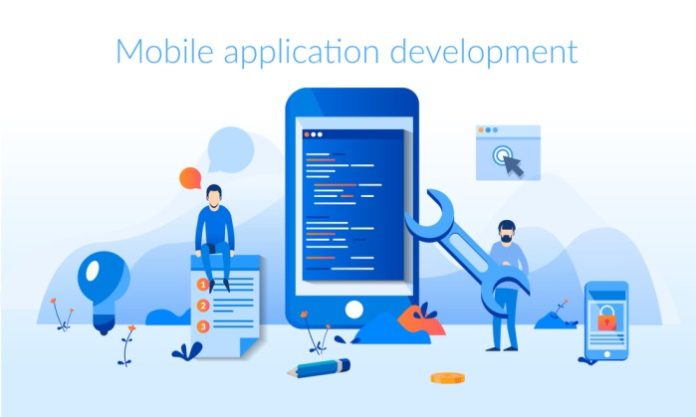This year, we’ve seen the rise of React Native – the cross-platform mobile app development framework developed by Facebook, which allows you to build native apps with one JavaScript codebase that can run on both iOS and Android. It has been rapidly gaining popularity among enterprises, startups, and agencies alike because it saves time and money without sacrificing quality or performance.
How often do you find yourself wishing that you could use the same codebase for both your mobile app and your website? Mobile app development has traditionally been expensive and time-consuming, but that’s all changed with the introduction of React Native.
React Native, which Facebook developed in 2015, has become the preferred way to develop mobile apps in 2018. Here are ten reasons why it’s great to use React Native to build your mobile app!
- Great performance, no app store approval delay
Since apps built with React Native don’t use a browser, they launch more quickly than those written in traditional JavaScript. That speed boost is helpful in and of itself, but it also means you can often skip app store approval delays altogether, especially for social sharing and utilities that don’t need reviews or ratings.
You’ll be able to respond immediately as your target audience needs you. Apps built with web technologies will always have performance issues on mobile devices because they are running through a rendering engine within a browser, making them slow by default and impairing their ability to take advantage of native device features such as motion sensors or camera access.
- React native developers come cheap!
Many organizations make bad decisions when it comes to
mobile app development. You may not realize it, but one of your biggest expenses is labour when you start developing a mobile app. Unfortunately, there’s a misconception that costs go hand-in-hand with mobile app development services, and professional software developers will cost you an arm and a leg.
That might have been true ten years ago, but top-notch software developers can be had for well under $100 an hour in today’s world. But, of course, there will always be outliers in both directions; some organizations will try to squeeze as much out of their budgets as possible while others aren’t willing to pay more than they feel necessary.
- Reusability of code base across platforms
Applications built using cross-platform solutions, like React Native, ensure that your code is reusable across platforms.
Mobile app developers would be hard pressed to develop one application with common functionalities that work on multiple mobile operating systems without a cross-platform approach.
For example, a cross-platform approach helps developers save time by creating once and sharing across apps. In addition, when changes are needed, or new features are added, you only have to update them in one place instead of multiple places. Moreover, if new features need to be developed or older ones updated but resources are limited—say because of budget constraints—you can reuse an existing component and adapt it as necessary instead of starting from scratch.
- Third-party support for react native app development increases with every release
If you’re planning on launching an app with a smaller user base and limited audience, you might be able to get away with creating it in native code. However, if you’re targeting a massive audience across multiple platforms, third-party support will only continue to grow (and improve).
With nearly every major player supporting React Native, including Facebook and Instagram, there are more than enough third party solutions available today to help you create a mobile application like none other.
This means that your development team can use these tools instead of spending valuable time figuring out how to build on all of those individual platforms from scratch. The result is better product creation at lower costs. That’s not a bad combination!
- No need to learn Java, Swift or Objective C
A lot of developers will tell you that
mobile app development is hard. For example, objective C, Swift and Java are all considered difficult programming languages, but when you use React Native, you’re working with JavaScript, a language almost anyone can pick up quickly.
This is also why Facebook released its framework for building applications in JavaScript—because it’s so user-friendly! But, of course, if your application relies on specific APIs or hardware that only works on native platforms (e.g., Apple Pay), then a cross-platform approach may not be right for you.
- Short development time due to in-built preprocessors
With React Native, you don’t have to worry about writing your own Objective-C/Swift or Java code. Everything has already been taken care of by its in-built preprocessors. When you code in React Native, Xcode and Android Studio work seamlessly with each other, allowing you to edit code on your computer and view it instantly on your mobile device.
This saves both time and effort while enabling quicker iterations of development cycles. You can also use universal modules, which further shortens development time. Its package manager (npm) is based on NodeJS and allows quick installation of third-party libraries from thousands of developers worldwide.
- Vibrant developer community
When you’re using a write once, run anywhere solution like React Native, it means that you have a consistent code structure from your server-side implementation (React) to your client-side implementation (the app). So if a change needs to be made in your app or website, you don’t need to go hunting through both sides.
This speeds up development and removes one area where bugs can occur. You’ll also experience less difficulty with localization and translation issues as you won’t have two different text versions. The same is true for any images used within your app; they can be edited in just one place now and will automatically appear everywhere else in an app.
- Leverage existing Javascript knowledge within your team
If you’re in a situation where you want your team to get up and running quickly,
react native app development is a very viable option. Since it leverages JavaScript. Many of your developers will already be familiar with React and React’s way of thinking about data flow. This means that there will be fewer issues as far as getting everyone up to speed. Goes – one of React Native’s biggest perks in app development.
That said, most teams will need some level of training to get on board with coding natively within React. But if you have existing knowledge. It can help streamline your team setup and make sure. That new hires have some foundation on which they can begin working from day one.
The Final Word
React Native is a powerful tool, and it’s only getting better with time. If you’re an app developer who wants to make your life easier. There are plenty of reasons why you should use React Native. Whether you want to develop a mobile app. That works across different platforms or something specifically tailored for a specific device. React Native has already done all of the hard work.





